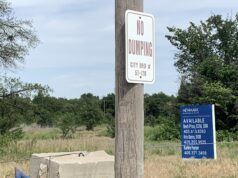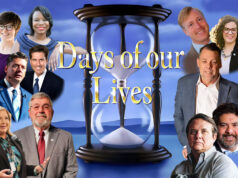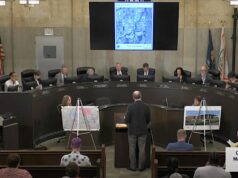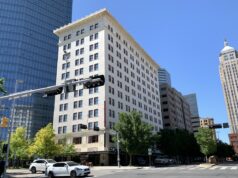
Oklahoma City voters will head to the polls Tuesday, Dec. 12, to determine the fate of a roughly $900 million publicly financed arena that would serve as the new home of the OKC Thunder and include loads of modern amenities the Paycom Center does not.
Also included could be a community benefits agreement similar to one the Milwaukee Bucks and the City of Milwaukee signed when Fiserv Forum opened in 2018. However, details remain murky, and voters have few guarantees about what potential wage requirements and workforce parameters might be established with construction companies or a contracted management group.
After the OKC City Council formally voted to set the Dec. 12 election at its Sept. 26 meeting, council members also voted 8-1 for the city manager to negotiate “the payment of regionally competitive wages commensurate with those paid by the City of Oklahoma City and its trusts, and further directing the creation of a working group to study and deliver findings and potential recommendations regarding the use of a labor peace agreement in the operations of the new arena.”
Arguments for and against the new arena proposal — that it’s necessary to ensure the Thunder stay in OKC through 2050, or that it’s a lopsided giveaway of public resources supporting some of the state’s wealthiest businessmen — will sway the public either to support the ballot question or not.
But if the vote passes, the subsequent establishment of a community benefits agreement could set a higher base pay for arena workers and promote hiring from some of the city’s most economically challenged ZIP codes for arena jobs. It could also establish similar benchmarks and even apprenticeship programs for the firms selected to construct the new public building.
Community benefits agreements have become more common in recent years. Los Angeles became one of the first cities in the county to tie a CBA to a major new development when the arena formerly called the Staples Center opened more than 20 years ago. Since then, Atlanta, Denver and Milwaukee are among the cities that have adopted CBAs as part of new developments.
8 a.m. to 6 p.m.
Thursday, Dec. 7 & Friday, Dec. 8
@ County Election Board
Milwaukee could be a model for what’s to come in OKC. In 2016, the Milwaukee Bucks and the Alliance for Good Jobs signed an agreement that included a $12 hourly wage for Fiserv Forum workers, with compensation rising to a $15 rate by this year. It also included a requirement that the arena hire from neighborhoods with high unemployment, and it allowed workers to unionize.
Fiserv Forum cost $1.2 billion to construct and included $200 million from Bucks ownership. Most of the remaining cost of the arena was publicly financed. In OKC’s upcoming election to extend a one-cent sales tax 72-month for a new arena, Thunder owners have offered $50 million toward construction costs, with the city’s sales tax collections financing loans for the remaining $850 million of expected costs.
Fiserv Forum is owned by the Wisconsin Center District, a government body created in 1994. The proposed new home of the Thunder would be owned by the City of OKC, with construction completion anticipated ahead of the 2029-2030 NBA season.
Cooper: ‘Milwaukee served as my inspiration’
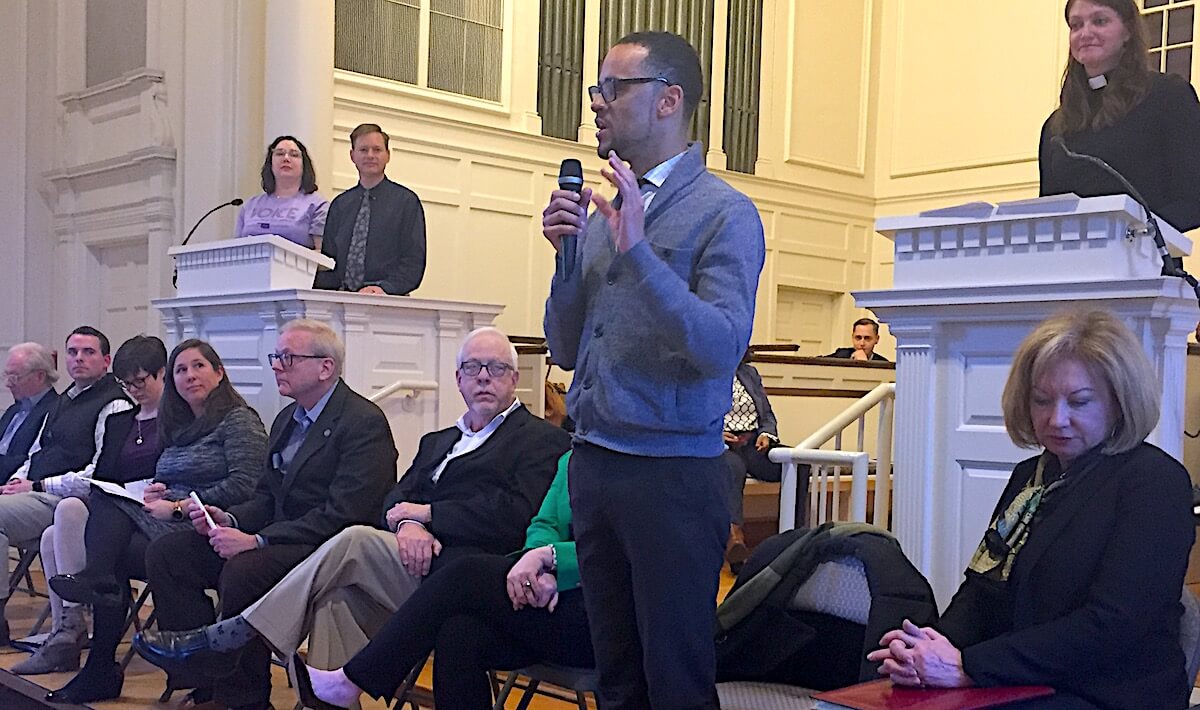
The CBA that could be tied to the new Thunder arena was brought forward by OKC Ward 2 City Councilman James Cooper, who said he began discussing the idea with Mayor David Holt and other council members not long after Holt announced the plan to build a new arena during his State of the City address in July.
At first, Cooper said he was opposed to public financing for the new arena. However, after reviewing the situation further, he said he believes a CBA can ensure that city residents see tangible benefits in the form of jobs and good wages amid large-scale use of taxpayer money to support infrastructure primarily benefiting a private business.
“Milwaukee served as my inspiration,” Cooper said. “The backstory is that myself and (Oklahoma House) Rep. Forrest Bennett — back in the summer of 2022 — approached Mayor Holt about doing something like they did in Milwaukee for a new arena here, and at the time we didn’t know many details. But we ended up finding out those details over the following year, and that’s what led us to where we are now.”
Cooper said the three pillars of the agreement could include a base-level hourly pay rate of $15, a hiring hall from areas of the city with the highest levels of unemployment, and a labor agreement that would allow arena workers to unionize.
But as early voting begins Thursday and Friday this week, it remains unclear what a final community benefits agreement might look like. And if the voters don’t approve the arena Dec. 12, the conversation would be moot anyway.
“The resolution is an attempt to get this out there and in the public eye,” Cooper said of the Sept. 26 meeting. “It’s very specific in trying to achieve that. I have every expectation that (OKC city manager) Craig Freeman will attempt to get it done. The resolution is a guide in terms of what the community needs are. It’s one thing to argue that cities have done this where NBA teams have needed a new arena and have assured residents the benefits will trickle down. This agreement says that may be well and true, but here are some ways to ensure people in the community have access to those jobs and also the training needed to acquire those skill sets.
“I think an apprenticeship program during the construction of the arena would be a wonderful way to replenish those trade jobs themselves.”
Ward 5 Councilman Matt Hinkle voted in favor of the Sept. 26 resolution. Hinkle said the idea of a CBA comes with some benefits and some drawbacks.
“I think Milwaukee did a really good job with what they did, just from what I’ve read and heard about it,” Hinkle said. “I know that Councilman Cooper and Councilman (Todd) Stone worked hard on putting the language together for this and getting the ball rolling. I like a lot of it, but from what I understand most of the people who work at the arena already are making more than what we’re promising to pay them. I think overall it’s a good safety net, but I’m not sure we have some of the same problems that Milwaukee had.”
Hinkle said he supports the idea of hiring arena employees who live in economically hard-hit areas of the city.
“I’m all for hiring whoever is capable of doing the work that needs to be done, as long as they can get themselves to work and do the job,” he said. “I don’t see anything wrong with looking to hire people who are in need of a job.”
Negotiating a community benefits agreement
Peter Rickman, president of the Milwaukee Area Service and Hospitality Workers Organization, negotiated the deal between the Bucks and the Alliance for Good Jobs. Rickman has followed what’s happening in Oklahoma City with the Thunder and the city’s new arena proposal, and he said he believes it’s an opportunity to mirror some of what happened in his city.
“It seems like the core components of a CBA are coming together,” Rickman said. “I think policymakers in OKC understand the value of it and have reached out to me to talk about what we did here. I think they recognize that when municipalities are funding these projects, that in and of itself is not a public good. But when it comes with good union jobs at the forefront, it becomes something that can benefit a lot of people.”
The Alliance for Good Jobs identified three wants in their negotiations for the CBA. Rickman said those core ideas can be applied in most cities.
“Going in, we outlined three core demands,” he said. “Living wages, which we articulated with the Fight for $15 movement. That amount seems quaint now, but at the time it was a big step. The second was the right to unionize, and the third was first-source hiring, which meant that they would work to hire those in the most need of a job in the city. Those formed the backbone of what we sought from the agreement. There are other things like workforce development programs that can also be included in CBAs with the aim of creating a better-skilled workforce over a longer period of time, which is a benefit to a community, especially one that is growing like OKC.”
Oklahoma’s minimum wage is currently just $7.25 per hour, a topic gaining attention owing to a proposed state question that would stair-step the state’s minimum wage to $15 per hour by 2029 and then increase annually thereafter based on cost of living increases as measured by the federal Consumer Price Index.
While some neighboring states have increased their minimum wage in recent years, thus far Oklahoma lawmakers have declined to take up the issue, and the potential state question is drawing opposition owing to its Consumer Price Index component.
Rickman said he has followed the development of OKC’s MAPS projects, which have been financed by the same one-cent sales tax proposed for a 72-month extension to fund the new arena. He said OKC missed an opportunity by not including a CBA in prior MAPS projects, which he called a good reason to include one now.
“If you go back 20 years with MAPS, just back to 2003, and imagine having a community benefits agreement for those projects, OKC would be the best place in America for working-class people to work and raise a family because of those projects,” Rickman said. “So there is no time like the present. If I were a voter in OKC, I would be looking at what policymakers are starting to do here and elsewhere, and if you think that is something worthwhile, then continue to press those policymakers on a community benefits agreement.”
But doing so would also require those involved with negotiations to stand firm. Rickman said negotiating with the Bucks was not as complicated as he thought it might be, mostly because the organization seemed willing to come to the table.
“We said no deal until there was a good deal for jobs,” Rickman said of those negotiations. “The deal started moving fairly quickly, and we had some luck in that the Bucks were willing to come to the table and participate.”
That may not be the case in OKC, where the international company ASM Global is contracted to operate the current arena.
Asked if the organization supports the concept of a CBA, Thunder vice president of broadcasting and corporate communications Dan Mahoney said the team will not have a role in that process.
“Since the arena is owned by the city, any discussion of a community benefits agreement would have to be conducted with the mayor, city manager, or council,” Mahoney said by email. “We are not directly involved in those discussions.”










